The Dirtbag Stereotype
I‘m tired of the jokes. What do you call a kayaker wearing a suit? The defendant. What do you call a paddler whose van is in the shop? Homeless.
Kayakers are often portrayed—and we portray ourselves—as the aquatic equivalent of itinerant ski bums. Every outdoor sport has its stereotype of impoverished, scruffy, mildly Kerouackian vagabonds: surfers migrating between beach parking lots or climbers squatting in Yosemite’s Camp 4. Fitz Cahall’s popular podcast, The Dirtbag Diaries, renewed the old myth for the Internet age.
It’s time to ditch the dirtbag image. First of all, it’s not true. Like most outdoor recreationalists, paddlers are relatively rich. And I don’t mean the “rich in spirit” sort of rich. I mean fat stacks of greenbacks rich. Second, and even worse than being false, the dirtbag stereotype is actually hurting us, and hurting us where it counts.
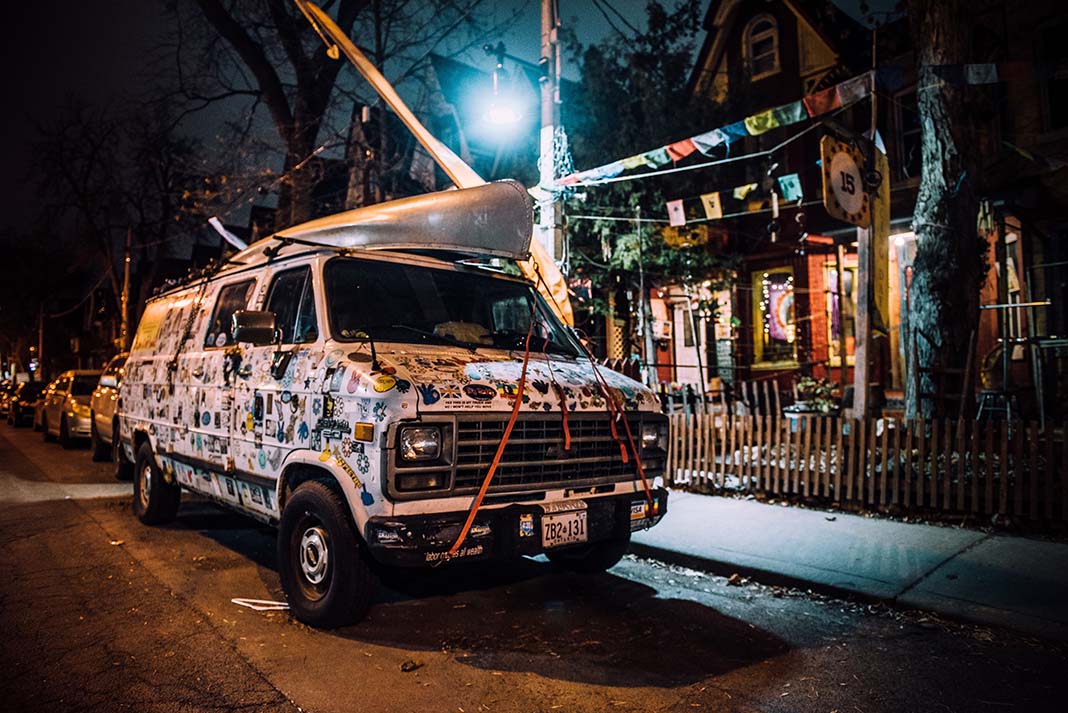
The Outdoor Industry
According to a recent analysis by the Outdoor Recreation Industry, $646 billion was spent on outdoor recreation in the US in 2012 alone. That’s billion with a B. It’s a phenomenal amount of money, as much as Americans spend on cars and gasoline combined.
“According to a recent analysis by the Outdoor Recreation Industry, $646 billion was spent on outdoor recreation in the US in 2012 alone.”
Outdoor recreation is larger than the total economic activity in Switzerland, where wealthy Europeans vacation in St. Moritz and Mafiosi and kleptocrat dictators stash their money in numbered accounts. Outdoor recreation even approaches the GDP of Saudi Arabia. We dirtbags are as loaded as an oil Sheikh.
The outdoor industry also creates six million jobs in the US, ten times more than Apple, the darling of Silicon Valley. In corporate terms, we’re twice the total assets and revenue of General Motors and Chrysler combined. They got an $80 billion bailout when times got tough. Now who’s “too big to fail?”
Kayakers are also individually wealthy. Most are professionals with college or advanced degrees. Fifty-five percent of kayakers make over $75,000 a year. Time is a bigger barrier to the sport than cost by a factor of four. We can afford that carbon-fiber paddle, we just may not have enough weekends and vacation days to use it.
>
Perhaps the dirtbag image is nostalgia for the early years when pioneering paddlers loaded into VW microbuses and spent entire summers out on trips. Or maybe the image is driven by guides and instructors—a small minority of kayakers—who make nothing close to $75K a year.
So the dirtbag myth is inaccurate. Who cares? Here’s why you should.
If we’re so wealthy, why are water trail sites being closed for lack of money to maintain them? Why are clean water laws attacked as “bad for the economy” when a $646 billion economy depends on clean water?
Money is power. Let’s embrace that power. “We just need to put our mouth where our money is.”
Money is power. Let’s embrace that power. As Adam Andis from the Sitka Conservation Society says, “We just need to put our mouth where our money is.” Let’s flood the halls of power with lobbyists. Big Oil has their lobbyists, but we have deeper pockets than Exxon or Shell. We want clean rivers, access to the shoreline, campgrounds kept open and wild places kept wild. River restoration should have the political urgency of a dip in the NASDAQ and the media breathlessness of a Justin Beiber scandal. People’s jobs are on the line.
Of course, it’s not that simple. When you lift the hatch cover on our raw economic power, it’s very decentralized. Four-fifths of the outdoor economy comes from travel rather than gear. The money goes to ferries in the San Juan Islands, the Super 8 motel near the Gauley River and my post-paddling beer more than to manufacturers and retailers. That makes our power harder to wield. Those scattered businesses may not even know how much their bread is buttered by outdoor enthusiasts.
“It’s much easier to capture the impact of pharmaceuticals or oil and gas, so that crystalizes more quickly in the minds of policy makers,” says Kirk Bailey, chief lobbyist for the Outdoor Industry Association.
The outdoor industry is also dispersed geographically, while industries such as big oil, high tech and finance have concentrated their clout locally in Texas, Silicon Valley and Wall Street, where they can affect the fortunes of governors, senators and congressmen, and create friendly political climates. But Adam Cramer, who lobbies for the Outdoor Alliance, sees an opportunity to turn the ebb into a flood. “I’ve heard floor statements from congressmen citing figures from the OIA survey,” he says. “When you put an economic argument of that magnitude on the table, it can be a game changer.”
But the game won’t change if we keep clinging to the dirtbag identity. Congressmen and governors don’t take dirtbags seriously. We’re rich, so let’s act like it.
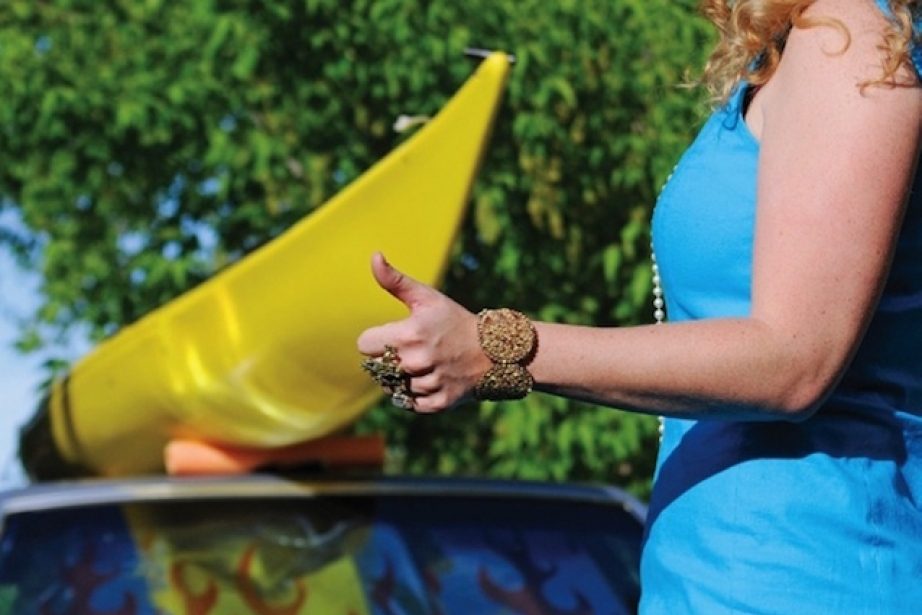
How to work together
There is one valuable thing we should take from the dirtbag lifestyle, though: how to work together. Whether it’s chipping in ingredients for a gourmet camping dinner, fixing a cracked hull on a remote beach, or uniting our voices for better policy, collaboration is where we excel.
I’m not talking about merely uniting Greenland-style kayakers and Euro- bladers, or even whitewater boaters and sea kayakers. I mean everyone who plays outside: paddlers, hikers, fishermen, skiers, climbers, hunters, mountain bikers, wilderness pogo-stick enthusiasts—the whole shebang. We should also make room under the tarp for the motorized crowd. People riding ski lifts or car camping on the coast have skin in this game, too.
What does this unified front look like? First, travel destinations like restaurants, motels, gas stations and chambers of commerce need to know who their customers are, and what they care about. Second, we need to magnify the work of groups like the Outdoor Alliance, which brings together paddlers, climbers and mountain bikers to advocate for public lands. “Being in D.C. isn’t enough. You have to have an outside game that bubbles up locally,” says Cramer, citing a union of outdoor recreationists that kept vast acres in Colorado wild.
Trade associations can mobilize gearheads to ensure we have decent places to use our gear. Individual paddlers should learn some new strokes, too: the armies who appear for river cleanups can also be armies who send emails when park funding is on the chopping block or a railroad claims it’s exempt from clean water laws.
And it’s time for new jokes. Or at least new punch lines. Not long ago a friend called for advice on a kayaking trip she was planning in Johnstone Strait. When she isn’t paddling or cycling, she’s the Chair of the Environment and Natural Resources Committee of the Oregon Senate. What do you call a kayaker wearing a suit? Madam Chairperson.
Neil Schulman is the co-founder of the Confluence Environmental Center, a paddler and a political wonk. Ask him about water policy at your peril.
This article first appeared in the Summer 2014 issue of Adventure Kayak Magazine. Subscribe to Paddling Magazine and get 25 years of digital magazine archives including our legacy titles: Rapid, Adventure Kayak and Canoeroots.



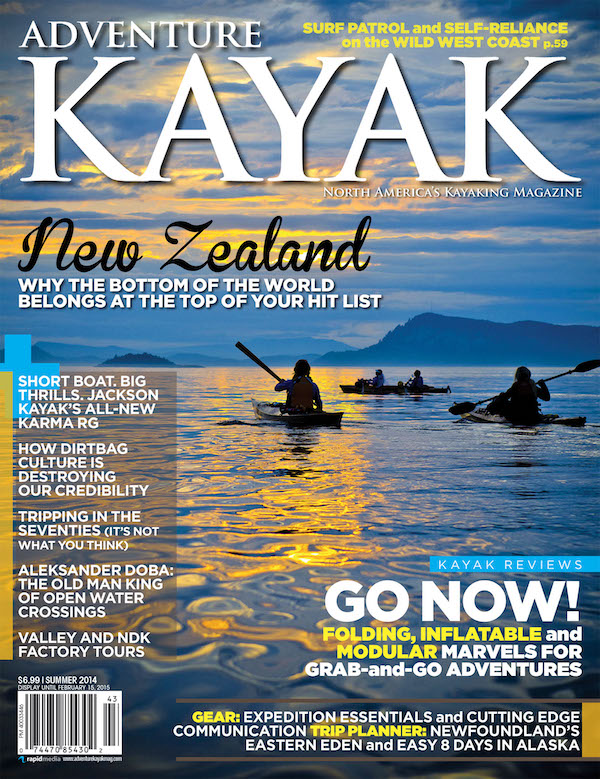
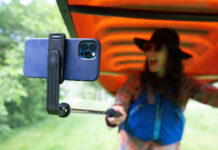
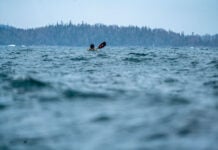
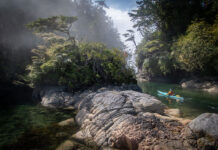
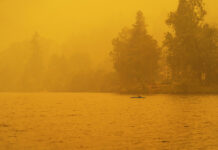
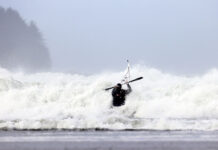

I think this article creates more stereotypes than it dispels.
$75k ? I work in the trades and I make half that . I also lived two summers in my vw van . Guess I’m a dirt bag